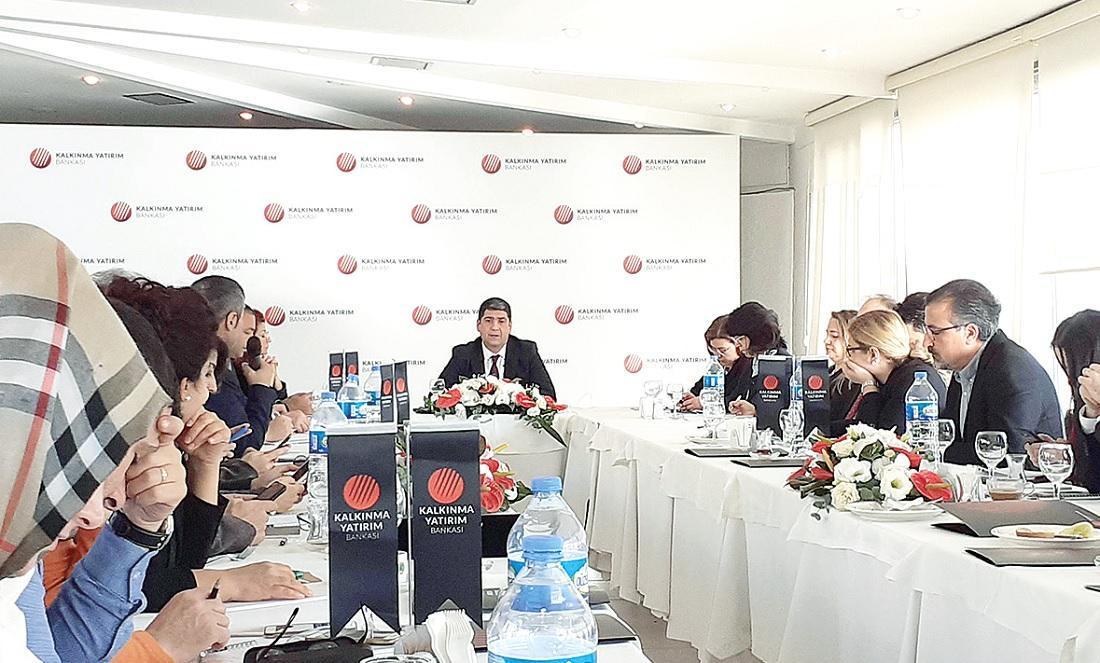Turkey’s development bank to launch diversified sub-funds
Engin Esen – ISTANBUL

One of the biggest Turkish development banks, which recently moved its headquarters from the capital Ankara to the country’s main commercial and financial hub Istanbul, has been planning to create a variety of sub-funds to support economic growth.
“We have been restructured to contribute to our country’s long-term strategies for the sustainable development goals. In 2018, our bank’s activity area was expanded with the addition of investment banking,” said İbrahim Öztop, CEO of the Development and Investment Bank of Turkey (TKYB), at a press conference in Istanbul yesterday.
“We have set up a new team bringing together our friends, who have been carrying our collective memory and willing to continue with us in Istanbul, with other friends experienced in the banking sector,” he said.
Öztop spoke to reporters about the planned Turkish Development Fund, an initiative to financially support the technology-based indigenous industry.
“This will be an umbrella fund. There may be many sub-funds under the development fund. Those sub-funds can be regional, sectoral or they can be stage-oriented, for instance, there can be a fund solely created to support venture capital firms, or another one to support firms in the stage of growth,” he said.
Although the TKYB has been involved in cooperation with the World Bank and development banks of Germany, Japan and other countries since 1975, the new Turkish Development Fund will initially be financially backed by the Turkish government, according to Öztop.
“In the first half of 2019, the Treasury and Finance Ministry has increased our issued capital 350 million Turkish Liras to 850 million liras [nearly $148 million]. Thus, we have support from the ministry,” he added.
The TKYB’s assets totaled 18.5 billion liras (nearly $3.2 billion) as of the end of September with an increase of 17.5 percent compared to the end of 2018. Credits constitute 78.3 percent of the total assets, according to the bank’s statement.
Öztop outlined the bank’s priority next year as supporting sectors which will decrease Turkey’s imports volume and increase exports volume as part of the 11th Development Plan.
“In the past, we supported several sectors from tourism to industry, from services to energy. Now, within the context of the 11th Development Plan, our priorities will be machinery-equipment, chemistry, industry, food and energy sectors,” he said.
“With a diversified product range, we have been structured to be one of the active players in the market. We are planning to take a pioneering role in merger and acquisition activities, capital market products, financial consultancy and access of businesses to domestic and foreign funds,” he added.
Under the 11th Development Plan, which was ratified by parliament on July 18, Turkey aims to increase the country’s gross domestic product to $1.08 trillion by 2023, the centenary of the Turkish Republic, with a per-capita income goal of $12,484.
Under an economic program announced last September, Turkey aims to achieve $226.6 billion in exports under the plan as well as single-digit inflation figures, marking a growth rate objective of 2.3 percent for 2019, 3.5 percent for next year and 5 percent for 2021.
















